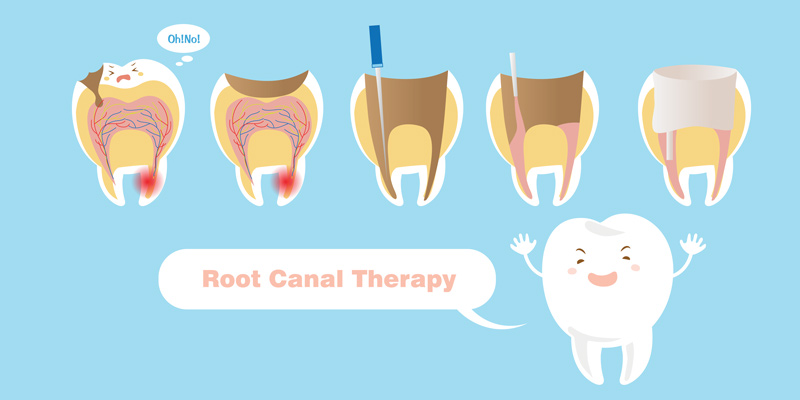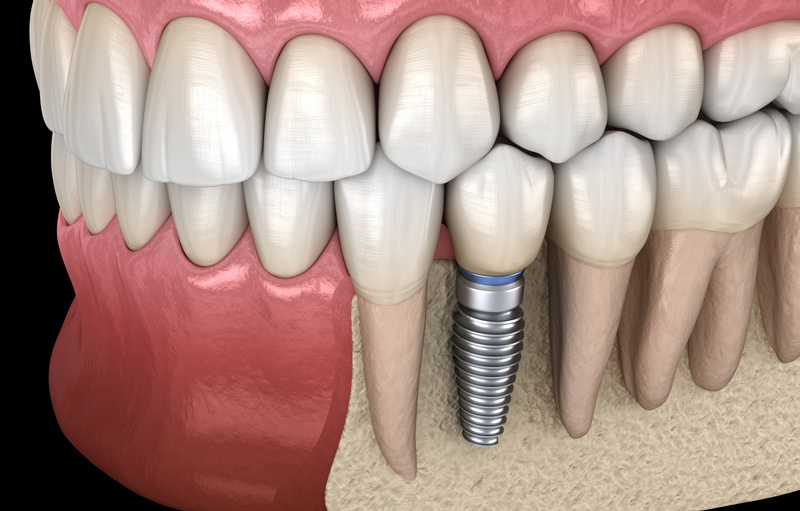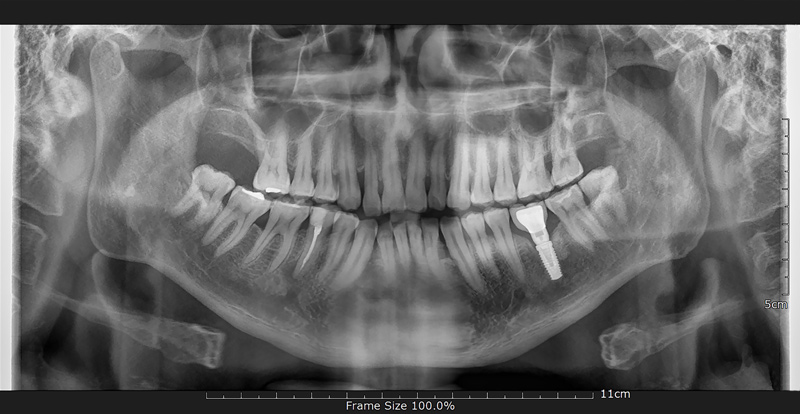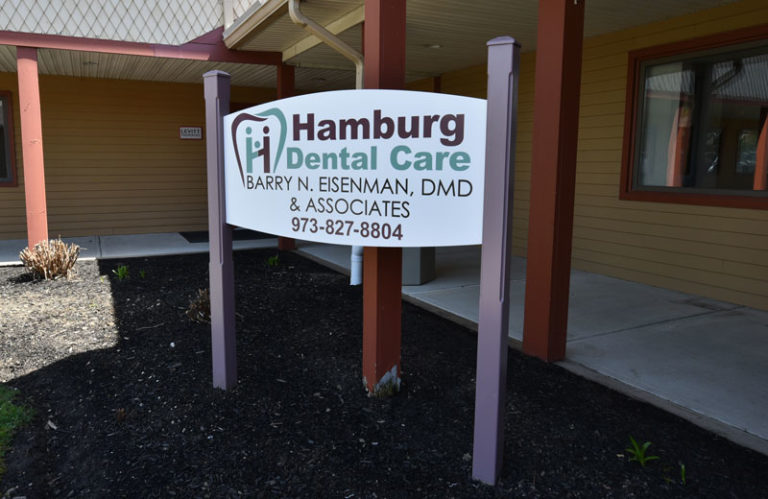Serious tooth decay that reaches deep into the root is a painful condition that can make eating difficult. It’s important to take care of this issue as soon as you notice any signs or symptoms. The first step in managing a damaged tooth involves choosing the best treatment. Root canals have been the traditional solution for infection at the root, but it’s not the only option.
Modern medicine also offers dental implants, which are surgically inserted artificial teeth. Both root canals and dental implants have very high rates of success. The best choice for you will depend on the severity of damage, risk, and cost. Here we discuss the pros and cons of both dental procedures.
What Is A Root Canal?

The root canal of the tooth is a naturally formed cavity within the center. A root canal treatment is needed when your oral health diminishes, causing a bad infection.
Dentists perform this procedure by numbing the infected tooth and drilling an opening in the crown. The infection is cleaned out of the tooth’s cavity along with the diseased pulp at the root of the tooth. The gap is filled in with a permanent filler that protects the root from further damage.
Finally, your dentist will place a permanent crown to seal that opening. One of the main benefits of this treatment is “saving” the tooth. Since its original structure will remain as a “shell”.
Root canals are highly debated in the dental and endodontist field. While the American Association of Endodontists says that root canals may be the best option, some studies say otherwise. What works best for the patient is usually the right course of action. Cost is typically a major factor. Issues reemerging in the same tooth is also a potential negative.

The Pros of Root Canals:
- You get to keep your tooth. Keeping all your teeth is beneficial for overall health. They help you smile, talk, and eat.
- You can preserve the bone around the tooth. Just like keeping all your teeth is important for your health, so is keeping the jawbone intact. Leaving your jawbone untouched promotes better total health.
- Regardless of what most people may lead you to believe, a root canal is a fairly painless dental care option. Especially with the new high-tech ways of administering anesthetic.
The Cons of Root Canals:
- Root canals can cause your tooth to become brittle. Even though the entire structure is left fully intact, the inside of the tooth has been hollowed. This can lead to more issues with the same tooth in the future.
- Root canals are more complicated than tooth extractions. As stated above, root canals take precision and time. That means your dentist may not be able to fully remove the dead tissue from the tooth. Choosing a qualified and experienced dentist is important.
- It may take multiple sessions depending on the tooth. Your doctor may want to remove the infection and let the area heal for two to four weeks. During this time your tooth will be filled but not sealed. This allows for an x-ray before sealing to prevent future issues.
What Are Dental Implants?

Dental implants are visually identical to teeth with a root similar in shape to a screw. A dental implant is often chosen when a tooth cannot be saved or if a look that feels natural is desired.
The first step in dental implantation is the extraction of the diseased tooth. Once extraction is complete your gums will need several months to heal.
After the first 10-14 days following removal, a temporary denture prosthetic can be used. When your dentist determines it is appropriate to move forward, a component is surgically affixed to the jawbone. This provides support for the crown or prosthetic.
Dental implants are debated as much as root canals. One argument against dental implants is a lack of knowledge about the long-term effects of metal implants in the human body.
While the scientific and medical communities cannot comment on those specifics without more time and testing, dental implants are considered by many as a great alternative.
The Pros of Dental Implants:
- There is little to no maintenance for implants. Because it is a fake tooth, you don’t have to fear decay. Just continue your daily routine and regular tooth cleanings.
- High-quality implants with proper care, can last a lifetime. No need to worry about replacement any time soon.
- They are strong and reliable. Eating tough foods will not chip or break implants and they don’t get brittle over time.
- Dental implants keep your smile from shifting and prevent bone loss.

The Cons of Dental Implants
- There are always risks when it comes to surgery. Because surgery is needed, you must be cautious of inflammation or infection, nerve damage, and fractures. If you notice any issues post-procedure, call your dentist immediately.
- Dental implants take time. After the surgery, your jawbone needs time to recover. In the end, it will take around 3 months for the process to be complete.
- Dental Implants can be very costly. While the type of implant needed will vary depending on the tooth, all options are costly. On average people spend $3,000-$5,000.
How to Choose the Best Treatment

Discuss treatment options with your dentist. Let your doctor know your concerns. Open communication is the best way to ensure proper care. Consider the following before deciding:
Cost – Getting an implant costs more than a root canal because an implant is a permanent and invasive surgery.
Oral Health – Root canals allow you to keep your natural tooth structure, which is beneficial for the health of your jawbone and smile. However, in some cases with extensive root damage, saving the tooth is not a viable option and an implant will be the right choice.
Permanence – Root canals will often need to be redone after five to ten years. An implant will last for decades because, unlike real teeth, they never decay.
The pain of an infected tooth is enough. Deciding between a root canal and a dental implant should not have to be your focus of concern. Select a dentist that is patient-focused and experienced with a variety of techniques.
Regularly scheduled dental appointments help avoid periodontal disease and other serious oral issues. Contact us today to learn more about how we can help restore the health of your teeth and your smile.




